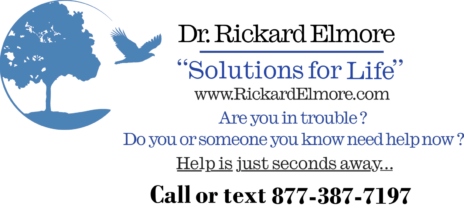The prevalent theory in the United States is that addiction is a chronic brain disease – a progressive, incurable condition that can be kept at bay only by fearful abstinence. There are variations of this disease model, one of which became the basis of 12-Step recovery and the touchstone of the vast majority of rehab programs. However, it can be argued that addiction is the result of “deep learning,” triggered by stress, alienation, or mental health. It can duly be unlearned by forging stronger synaptic pathways via better habits.
Neurobiological Changes and Addiction
Repeated alcohol and drug use cause tangible changes in the brain. The longer an individual spends in their addictive state, the more the cues attached to substances will turn on the dopamine system in the brain. At the same time as the release of dopamine, nicknamed the feel-good chemical, is being ramped up, there is a decreased activity in areas of the brain responsible for judgment and decision-making.
According to the National Institute of Drug Abuse, these neurobiological changes are evidence of brain disease. However, such changes are induced by any goal-orientated activity that becomes all-consuming. These may include gambling, sex addiction, internet gaming, learning a new language or instrument, and activities such as falling in love or religious conversion.
Addiction as a Secondary Problem
Most people who become addicted to drugs and alcohol are experiencing some kind of loneliness, depression, alienation, or other mental health problems. Addiction is a learned behavior influenced by personal suffering. Those who suffer from addiction use substances to satisfy a physical or emotional need. In this sense, addiction is like a symptom, not a disease.
While some people believe addiction is genetic, there’s no gene for addiction or even a cluster of genes. Instead, it’s a combination of features, each of which has some genetic loading, such as impulsiveness, frustration tolerance, and sensitivity to rejection. Even a high or low IQ could be a genetic factor because both can make individuals vulnerable to different kinds of environmental stress. However, addiction is closely tied to anxiety, attention deficit hyperactivity disorder (ADHD), and obsessive-compulsive disorder (OCD). These mental health disorders tend to be hereditary traits that can be triggered by stress or shame, such as trauma, loss of a relationship or job, and societal disruption or oppression.
Oversimplifying Addiction
During the 1990s – known as the “decade of the brain” – advancements in neuroscience and brain imaging meant “technology caught up with the terminology.” During this time, there seemed to be a shift from the term “disease” as a rhetorical device to something that people believed literally. Looking at addiction as a disease simplifies dependence down to brain chemistry. In reality, it is a complex cultural, social, psychological, and biological phenomenon.
A One-Size-Fits-All Approach
The disease model of addiction over-simplifies drug and alcohol problems with a one-size-fits-all assessment and treatment. Policies that are multifaceted public health models are needed, such as advocating for harm reduction. Some people find inpatient care critical, long-term help in a collegiate community such as Alcoholics Anonymous, or are helped by particular pharmacotherapies. No single approach has been demonstrated to be “the way.”
Shifting From 12-Step Focus
Although programs like Alcoholics Anonymous and Narcotics Anonymous have helped many individuals get sober for decades, many have not succeeded. The first of the 12-Steps states: “We admitted we were powerless over alcohol,” and literature dictates that the reins be handed over to a Higher Power. However, sobriety requires self-empowerment. Even as a member diligently attends meetings in church halls, their disease is said to be “doing push-ups in the parking lot.” In other words, dare to stop attending meetings, and addiction will knock you right back out.
When individuals with short or long-term sobriety relapse, there is often a common refrain that is invoked: “They just didn’t want to stay sober. They are not willing to go to any lengths for their recovery. However, this could not be farther from the truth. There are other solutions out there.
Finding the Solution
Addiction is not a disease, rather a problem that needs a solution. While the disease concept suggests that a person who has become abstinent will be in remission forever, new habits can overwrite old ones. However, an individual can overcome addiction with a powerful surge towards other goals, goals about their relationships, feeling whole, connected, and under control. The brain is highly activated and looking for those other goals to connect with.
The reality is every individual who makes an attempt to gain sobriety has a deep desire to succeed. What they often lack is the wisdom needed to do so. The goal is for individuals to access “presence” within themselves, so they no longer feel the need to engage in addictive behaviors that substitute for experiencing genuine wellbeing.
It is a widespread belief that addiction is a disease. While addiction does change the brain, this is not indicative of brain disease. Many of these changes also occur when you fall in love or make money. By framing addiction as a disease, we dismiss many of its complexities. Addiction is a primary mental health concern that often stems from loneliness, mental health diagnoses, trauma, and more. Luckily, finding the solution to addiction is easy with Rickard Elmore Treatment Strategies. Rickard Elmore’s Intervention team takes a full-scale approach to recovery, equipping people with expertise and service where they need it. We address every complex aspect of addiction and mental health and restore every area of life as a result. We don’t believe in surviving through recovery, but in the creation of a brand new life, with limitless horizons and possibilities. For more information on how Rickard Elmore Treatment Strategies can help you find recovery, call us today at (877) 387-7197.
